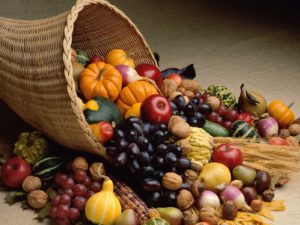Seeing the effects of the storm Sandy renewed my interest in resilience, the capacity to make it through ordinary and extraordinary events. Whether it’s something nature dishes out; droughts, flood, or hurricanes, or people caused events; wars, dislocation, or enslavement, the effects of these events can stay in individual and community bodies for generations, affecting people’s present day functioning.
I attended a lecture recently at the University of Pittsburgh’s Center for Race and Social Problems on the topic of “Bodies Don’t Just Tell Stories, They tell Histories: Embodiment of Historical Trauma and Micro-aggression Distress.” The lecturer was Karina Walters, a professor of Social Work at the University of Washington and a member of the Choctaw Nation of Oklahoma. A researcher on the health effects of trauma within her own tribe and also with indigenous people in New Zealand, she provided amazing insights into how the body takes up and passes on trauma’s effects.

Anthropological research has documented that women pregnant during a famine tend to overfeed their children later on, leading to obesity and diabetes. In exploring the effects of this in her own tribe she met with the grandmothers about their practices of feeding their children. The message they gave her was something like, “We’re big people. We’ve always been big people. We don’t want some skinny white lady coming in here and telling us what to feed our children.” After this meeting Karina found pictures of the tribe from the middle of the nineteenth century and, (as she had suspected) the people were not big, but slender and fit.
What brought about this change in succeeding generations, in the shape and size of tribe members, along with the corresponding changes in their health status? Once the people were made to live on reservations they could no longer stay true to, what Karina calls, their ancestors “original instructions.” The years of little to eat and having to eat governmental surplus rations destroyed their ability to continue the practices of securing, preparing and eating that had kept their ancestors healthy for thousands of years.
This phenomenon of people becoming bigger (obese) and less healthy than previous generations is becoming common in the U.S, especially in food deserts where fresh fruits and vegetables are unavailable or financially prohibitive. Perhaps we should ask ourselves, even those of us who have more resources, what is interfering with our carrying out our “original instructions” around feeding ourselves. Relying on mass-produced food which contains massive amounts of sugar, chemical additives, and genetically modified grains, keeps us from growing our own vegetables, serving simple whole foods, and reserving sugary treats for special occasions and community celebrations.
As we offer gratitude for the bounty of America’s food harvest and remember those who do not have the resources to eat in the healthy ways of their ancestors, may we be mindful that today’s children carry in their own bodies, the health and welfare of their own futures and those of their offspring, that the future resilience of a people resides in the bodies of their young.

